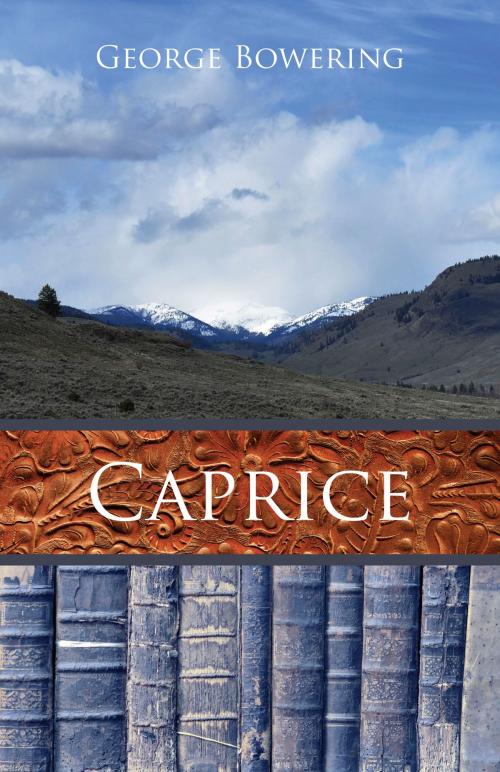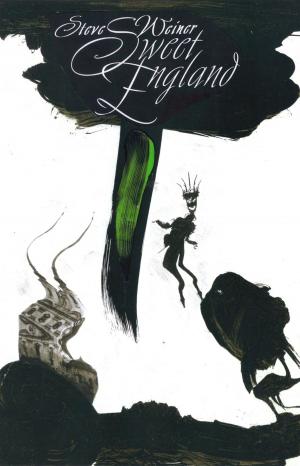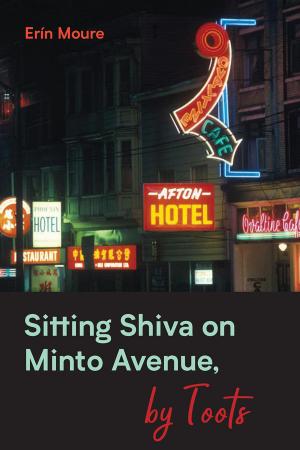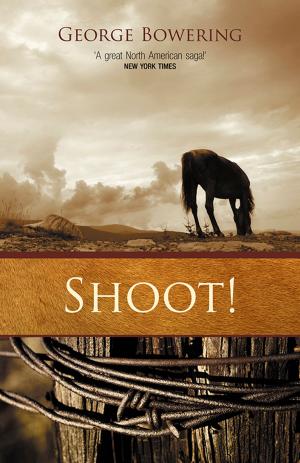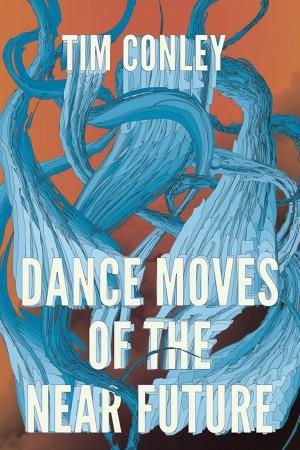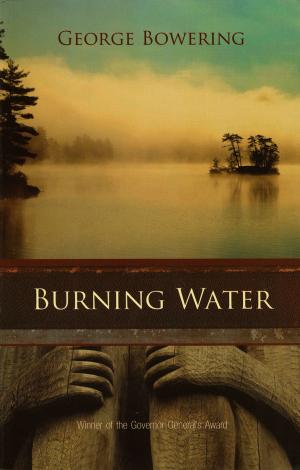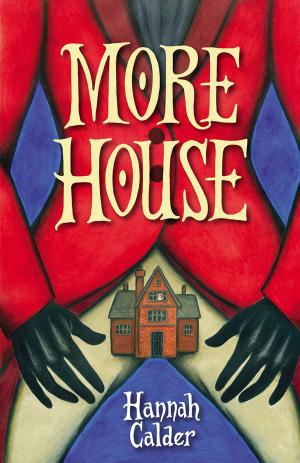| Author: | George Bowering | ISBN: | 9781554200801 |
| Publisher: | New Star Books | Publication: | January 8, 2014 |
| Imprint: | Language: | English |
| Author: | George Bowering |
| ISBN: | 9781554200801 |
| Publisher: | New Star Books |
| Publication: | January 8, 2014 |
| Imprint: | |
| Language: | English |
It's the mid 1890s in Kamloops, British Columbia. Two men argue over a bottle of whisky and in the struggle Frank Spencer, an American outlaw-turned-farmhand, kills Pete Foster, a French-Canadian and fellow farmhand.
Enter Caprice: a vision and a brain. Almost six feet tall, with flaming red hair and long legs, and toting a lethal bullwhip, she sets out to avenge her brother's murder. Travelling with her beloved black Spanish stallion, Caprice trails her brother's murderer to Mexico and back. Determined and headstrong as she is smart, she leaves an impression on the people she encounters in her journey: Gert, the whore with a heart of gold; Gert's son, for whom she provides affi rmation, and not the least Frank Smith, her lover, a teacher and amateur baseball player who wants her to leave the law enforcement to the professionals and marry him.
Caprice finally comes face to face with her brother's murderer at Deadman's Falls.
First published in 1987 and based on actual events in BC's history, Caprice is a witty, adventurous and colourful recreation of a Canadian heroine's quest in avenging her brother's murder, a woman well ahead of her times, who refused to be pigeonholed into a stereotype, who questioned authority and did so with unflinching resolve.
Caprice is a companion to Bowering's Burning Water and Shoot!, reissued by New Star in 2007 and 2008.
With a foreword by Aritha Van Herk.
EXCERPT
Section One
IF YOU HAD ORDINARY English eyes, you would have seen late-morning sunlight flooding the light brown of the wide grassy valley and making giant knife shadows where the ridges slid down the hillsides, free of trees, wrinkles made in a wide land that didnt seem to be in that much of a hurry. As usual in the summer there wasnt a cloud in the sky, and you could not be sure where the sun was because you didnt dare look up at that half of the sky. You paid attention to shadows, to know what time it was, and because any animal with any sense was resting where it was darker.
But if you had those famous Indian eyes you could look down into the wide valley and see something moving, maybe a lot of things moving, but especially one black or at least dark horse, which meant probably a rider too, and in a little while a rider for certain. Coming from the east, walking so slowly that the puffs of dust rose no higher than the animal’s knees.
There were two men halfway up one of those ridges, or rather the cleft between two of them, because there was a little stream that ran down the cleft, and once in a while a fish about the length of a baby’s forearm would be seen lying still in a shadow where the stream found it possible to slow down for a while. These two men had long sticks with points on the end, and it was their job to stick fish whenever they could. Sometimes, when their families and friends were particularly insistent about fish, they would go down to the river and get wet while sinking nets on the ends of poles, but when the days were a little more relaxed, they liked to come here to the stream, because spearing was more enjoyable than netting, and the view was terrific. Sometimes you could be the first people to see someone new.
Actually one of the Indians could remember seeing a lot better than he could see, but he could also pretend he could see a lot better than he could see.
“Is it anyone we know?” he asked.
“I have never seen that horse before,” said the second Indian.
“I was not inquiring about our familiarity with horses,” said the first Indian. “Our familiarity with horses has not been in question for the past five generations at least.”
“I know that it is customary for a young man to respect his elders,” said the second Indian. “But that does not mean that I have to double over with laughter at your corny jokes.”
The first Indian liked that. It made the joke worthwhile, and so he was still the season’s master.
“All right,” he said. “Can you tell me anything about the familiarity of the animal’s rider?”
“Is the nature of your question a step in the education of a youth, or a confession that your eyes are not what they used to be?” asked the second Indian.
He was a proud athlete and of superior intelligence, or so said his family, and he had expressed the faith that he was destined to immortalize his people by application of his artistic predilections. That could get to be quite tiresome when one wanted to pass on a little lore, an old man’s prerogative.
“Do tell an infirm old uncle what you think you see,” he urged.
“I am not sure I can find the words,” said the second Indian. “It is certainly no one we know, and perhaps something we have not seen among the white people who have been thoughtful enough to come and pursue their living among us.”
“I hope you are not talking about magic again,” said the first Indian. “You know how impatient I become when you get started on magic and the great spirit and all that.”
“Not magic. Just a problem in words. Most of the white men around here call themselves cowboys, is that right?”
The first Indian was looking at a fish that was trying to decide whether to stick its front half out into the sunshine falling through the clear water of the stream. He thought he might let this one go.
“Cowboys.”
“And their women. What are they called?”
“Some are called ranch wives. They fry dough and shake bedding on the back porch. They milk the milk cows and nail the house back together when it gets loose. They ride out and find lost animals. Others are called different things, the ones in town. I have heard one called Gert. Once I heard a cowboy refer to her as ‘that fucking whore.’ I thought that was rather redundant, but I imagine that you know more about the white man’s language than I do, having worked with more informants. What would you call that creature on the dark horse?”
“Well, if the man who rides alone like that, with a rope and a weapon and some bags on the horse with him, is called a cowboy, what would you call a woman who rides a black horse west along the river valley, alone and in possession of all those things? Are you going to spear that fish? It’s your turn.”
The older man deliberately missed the fish and watched it scurry for the deepest shadows.
“What do you think? Could she be a ranch wife?”
“Not a chance. You should see her – ”
Insolent kit!
“You should see her. She sits with her back straight and her hand on her upper leg. Not a bit of her bounces when the horse steps.”
“Not a bit?”
“She rides just like a man.”
The first Indian could see that the youngster would require a little more education in the area of his own language.
“She rides just like an Indian,” said the second Indian.
“Is she an Indian?”
“No. She has red hair tied in two ropes that fall over the front part of her, where, as I said, she does not bounce.”
The first Indian had not actually seen such a thing before, not such a thing riding alone with a weapon and bags. He didnt see her now, of course, though he could make out a rider and a horse, and he was willing to say now that the horse was black. He had never heard of such a thing. But it was not necessary to admit that. One could, and indeed, given his position, should allow his student to infer that such an apparition was riding out of the cache of his ancient knowledge as certainly as it was riding out of the east. If he were to continue to ask questions it would appear that he was doing so as part of his traditional role, and there could be no harm in that.
“What white man’s word – ”
“White man’s word?”
“All right. What word used by the white man do you think should properly apply to such a phenomenon?” asked the first Indian.
“Well, she is not a ranch wife, or she would be up at the Double W or the Lazy 8, throwing scraps at the chickens. And she isnt a cowboy despite the clothes and weapon and bags, because though she does not bounce she is a woman or at least a girl – ”
“Let us say a woman, till we know for sure,” said the old man.
He wasnt really that old, but the more time he spent with his protégé, the older he felt. He was now thinking of himself as the old man rather than the full man of the tribe.
That was the white man’s word. Tribe.
“So maybe we have to call her a cowgirl. I suppose that even though for the convenience we are calling her a woman, we can call her a cowgirl. That is, the white men call each other cowboys, and they dont seem to mind.”
“We dont seem to mind being called Indians,” said the first Indian.
“That’s a different matter, surely,” said the second Indian.
“It may be. It may be. But seeming is a different matter from being, too.”
“Well, your fish seems to be back. Why dont you poke him?”
“Or her.”
“I know your eyes are good enough to tell that much, old man.”
The first Indian moved only the necessary part of his body, and in less time than it takes for a raven to turn in the air, the male fish was on his stick, already losing its colour in the late morning sun. The second Indian noticed that his teacher’s eyes had not left his own during the operation. Every once in a while the old man would do something like that, and though it made the second Indian somehow a little embarrassed about some of the things he had been saying, it also assured him that he had been born among the right people.
“She might be called a bullgirl,” he said.
It's the mid 1890s in Kamloops, British Columbia. Two men argue over a bottle of whisky and in the struggle Frank Spencer, an American outlaw-turned-farmhand, kills Pete Foster, a French-Canadian and fellow farmhand.
Enter Caprice: a vision and a brain. Almost six feet tall, with flaming red hair and long legs, and toting a lethal bullwhip, she sets out to avenge her brother's murder. Travelling with her beloved black Spanish stallion, Caprice trails her brother's murderer to Mexico and back. Determined and headstrong as she is smart, she leaves an impression on the people she encounters in her journey: Gert, the whore with a heart of gold; Gert's son, for whom she provides affi rmation, and not the least Frank Smith, her lover, a teacher and amateur baseball player who wants her to leave the law enforcement to the professionals and marry him.
Caprice finally comes face to face with her brother's murderer at Deadman's Falls.
First published in 1987 and based on actual events in BC's history, Caprice is a witty, adventurous and colourful recreation of a Canadian heroine's quest in avenging her brother's murder, a woman well ahead of her times, who refused to be pigeonholed into a stereotype, who questioned authority and did so with unflinching resolve.
Caprice is a companion to Bowering's Burning Water and Shoot!, reissued by New Star in 2007 and 2008.
With a foreword by Aritha Van Herk.
EXCERPT
Section One
IF YOU HAD ORDINARY English eyes, you would have seen late-morning sunlight flooding the light brown of the wide grassy valley and making giant knife shadows where the ridges slid down the hillsides, free of trees, wrinkles made in a wide land that didnt seem to be in that much of a hurry. As usual in the summer there wasnt a cloud in the sky, and you could not be sure where the sun was because you didnt dare look up at that half of the sky. You paid attention to shadows, to know what time it was, and because any animal with any sense was resting where it was darker.
But if you had those famous Indian eyes you could look down into the wide valley and see something moving, maybe a lot of things moving, but especially one black or at least dark horse, which meant probably a rider too, and in a little while a rider for certain. Coming from the east, walking so slowly that the puffs of dust rose no higher than the animal’s knees.
There were two men halfway up one of those ridges, or rather the cleft between two of them, because there was a little stream that ran down the cleft, and once in a while a fish about the length of a baby’s forearm would be seen lying still in a shadow where the stream found it possible to slow down for a while. These two men had long sticks with points on the end, and it was their job to stick fish whenever they could. Sometimes, when their families and friends were particularly insistent about fish, they would go down to the river and get wet while sinking nets on the ends of poles, but when the days were a little more relaxed, they liked to come here to the stream, because spearing was more enjoyable than netting, and the view was terrific. Sometimes you could be the first people to see someone new.
Actually one of the Indians could remember seeing a lot better than he could see, but he could also pretend he could see a lot better than he could see.
“Is it anyone we know?” he asked.
“I have never seen that horse before,” said the second Indian.
“I was not inquiring about our familiarity with horses,” said the first Indian. “Our familiarity with horses has not been in question for the past five generations at least.”
“I know that it is customary for a young man to respect his elders,” said the second Indian. “But that does not mean that I have to double over with laughter at your corny jokes.”
The first Indian liked that. It made the joke worthwhile, and so he was still the season’s master.
“All right,” he said. “Can you tell me anything about the familiarity of the animal’s rider?”
“Is the nature of your question a step in the education of a youth, or a confession that your eyes are not what they used to be?” asked the second Indian.
He was a proud athlete and of superior intelligence, or so said his family, and he had expressed the faith that he was destined to immortalize his people by application of his artistic predilections. That could get to be quite tiresome when one wanted to pass on a little lore, an old man’s prerogative.
“Do tell an infirm old uncle what you think you see,” he urged.
“I am not sure I can find the words,” said the second Indian. “It is certainly no one we know, and perhaps something we have not seen among the white people who have been thoughtful enough to come and pursue their living among us.”
“I hope you are not talking about magic again,” said the first Indian. “You know how impatient I become when you get started on magic and the great spirit and all that.”
“Not magic. Just a problem in words. Most of the white men around here call themselves cowboys, is that right?”
The first Indian was looking at a fish that was trying to decide whether to stick its front half out into the sunshine falling through the clear water of the stream. He thought he might let this one go.
“Cowboys.”
“And their women. What are they called?”
“Some are called ranch wives. They fry dough and shake bedding on the back porch. They milk the milk cows and nail the house back together when it gets loose. They ride out and find lost animals. Others are called different things, the ones in town. I have heard one called Gert. Once I heard a cowboy refer to her as ‘that fucking whore.’ I thought that was rather redundant, but I imagine that you know more about the white man’s language than I do, having worked with more informants. What would you call that creature on the dark horse?”
“Well, if the man who rides alone like that, with a rope and a weapon and some bags on the horse with him, is called a cowboy, what would you call a woman who rides a black horse west along the river valley, alone and in possession of all those things? Are you going to spear that fish? It’s your turn.”
The older man deliberately missed the fish and watched it scurry for the deepest shadows.
“What do you think? Could she be a ranch wife?”
“Not a chance. You should see her – ”
Insolent kit!
“You should see her. She sits with her back straight and her hand on her upper leg. Not a bit of her bounces when the horse steps.”
“Not a bit?”
“She rides just like a man.”
The first Indian could see that the youngster would require a little more education in the area of his own language.
“She rides just like an Indian,” said the second Indian.
“Is she an Indian?”
“No. She has red hair tied in two ropes that fall over the front part of her, where, as I said, she does not bounce.”
The first Indian had not actually seen such a thing before, not such a thing riding alone with a weapon and bags. He didnt see her now, of course, though he could make out a rider and a horse, and he was willing to say now that the horse was black. He had never heard of such a thing. But it was not necessary to admit that. One could, and indeed, given his position, should allow his student to infer that such an apparition was riding out of the cache of his ancient knowledge as certainly as it was riding out of the east. If he were to continue to ask questions it would appear that he was doing so as part of his traditional role, and there could be no harm in that.
“What white man’s word – ”
“White man’s word?”
“All right. What word used by the white man do you think should properly apply to such a phenomenon?” asked the first Indian.
“Well, she is not a ranch wife, or she would be up at the Double W or the Lazy 8, throwing scraps at the chickens. And she isnt a cowboy despite the clothes and weapon and bags, because though she does not bounce she is a woman or at least a girl – ”
“Let us say a woman, till we know for sure,” said the old man.
He wasnt really that old, but the more time he spent with his protégé, the older he felt. He was now thinking of himself as the old man rather than the full man of the tribe.
That was the white man’s word. Tribe.
“So maybe we have to call her a cowgirl. I suppose that even though for the convenience we are calling her a woman, we can call her a cowgirl. That is, the white men call each other cowboys, and they dont seem to mind.”
“We dont seem to mind being called Indians,” said the first Indian.
“That’s a different matter, surely,” said the second Indian.
“It may be. It may be. But seeming is a different matter from being, too.”
“Well, your fish seems to be back. Why dont you poke him?”
“Or her.”
“I know your eyes are good enough to tell that much, old man.”
The first Indian moved only the necessary part of his body, and in less time than it takes for a raven to turn in the air, the male fish was on his stick, already losing its colour in the late morning sun. The second Indian noticed that his teacher’s eyes had not left his own during the operation. Every once in a while the old man would do something like that, and though it made the second Indian somehow a little embarrassed about some of the things he had been saying, it also assured him that he had been born among the right people.
“She might be called a bullgirl,” he said.
